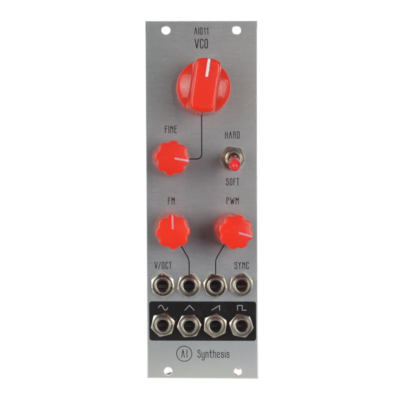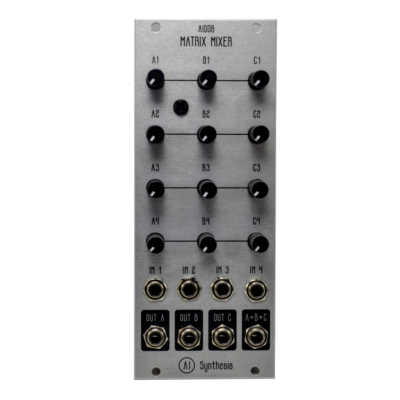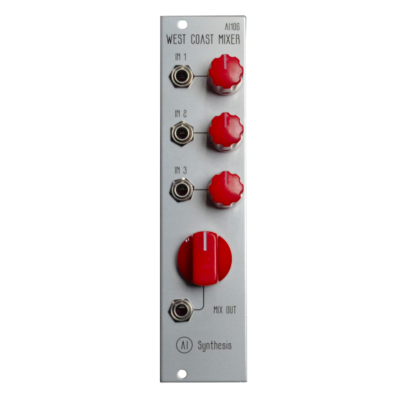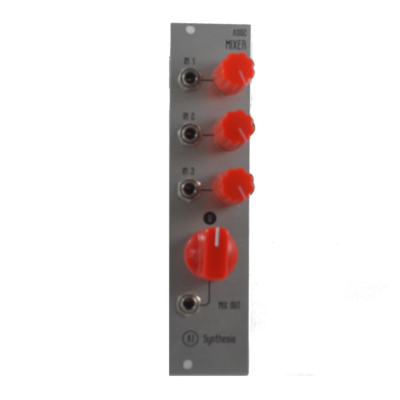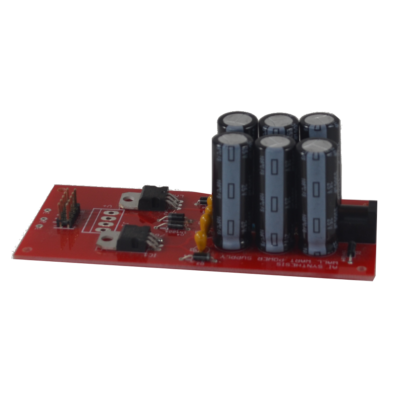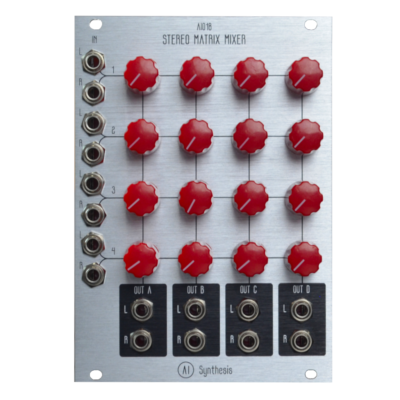Dr. DivKid or: How I Learned to Stop Worrying about my Rack and Love Learning
When I break my social media diet and visit a forum or reddit, I see the same two posts over and over, you’ve probably seen them too: “What Module Should I Buy Next,” and “What Module Should I Buy First.” When I see the same posts again and again, it tells me that there is an opportunity to educate, and my brain tells me: You should write a guide for this. I didn’t want to for a long time, because I don’t want to discourage those posters for seeking knowledge, and frankly, I’m not looking to be a buzzkill. But listening to a recent (excellent) interview on the great Podular Modcast with DivKid greatly helped me distill some of my own thinking, and made me realize I wasn’t alone in my opinions. Disclaimer: These are personal opinions based on my personal experience, so if it doesn’t apply to you, that is ok and it makes sense.
Tips from an Old Beginner to a New Beginner
I was super excited when I bought my first modular system. I wasn’t sure what I would do with it, exactly, but I knew I had always wanted a modular. A guy on Craigslist was selling his home-built, quasi-working, non-format MFOS system, and we negotiated a price I could afford. The system was essentially a multi-oscillator mono synth, and when I plugged it in, my first thought was… is this it? Why did I get another (harder to use) analog mono-synth. What the heck am I going to do with this thing?
I struggled with this for months! Eventually I decided to scale back on my intentions (whatever those were) for modular and focus on learning about what made modular unique. I would spend hours just listening to the oscillators, mixing their outputs together, and getting them to “beat.” I would run external audio through the filters, and, slowly, by experimenting with each module at a time, and really focusing, I gradually learned what they could do together that was different from my other gear, and more importantly, what investments would expand what I could do. It’s for this reason I advise: When starting out – DON’T START BY BUILDING A MODULAR MONOSYNTH (more on that below.) Now you know where I am coming from, now onto why I don’t think asking what module to buy next or first is the most productive question.
The above is an example of me experimenting with two oscillators beating against each other in my first modular system. There were no VCAs or envelopes patched, I was just studying the behavior of these oscillators through filters.
The Internet Can’t Tell You “What Module Should I Buy First”
Well, the internet can, I guess… it does it every day, but it can’t do it in the best way. We see a lot of “What Module should I Buy First” threads. We also see a fair number of “This isn’t for me, I’m getting out of Modular” threads. These two posts regularly have the following in common:
- The systems are built around a modular mono-synth mentality.
- The poster may have a genre or an inspiration in mind, but never had a concrete goal.
- The poster thought that with enough research, they could buy a perfect row right off the bat, and/or that the gear alone would expand their musical voice.
The Trouble with starting with a Modular Monosynth
The reason I keep harping on modular mono-synths as not a great start is because 1) It’s much cheaper, and just as rewarding, to get a semi modular from a reputable maker (0 Coast, Minibrute, or Mother32). Will you always keep that first semi-modular? Maybe not, but if you are getting into modular, the sooner you get used to buying, trading, and selling, the better, it’s in the DNA of the format. What you WILL get from using the semi-modular is the ability to practice and experiment with using parts of a system, and more importantly, you’ll be able to find your voice with a system that works well together, and begin to get an idea of what will expand your voice. Modules are different, and Eurorack has no standards. Some oscillators are louder than others, some filters have different gain staging than others. A semi-modular is designed to work with itself, so you instantly avoid the common frustration of one module not being ideal for another module without the help of another module.
What should I buy first or what should by next. It’s a bit annoying when people don’t do their research but ultimate answer is: you can’t answer that question for them. Unless it’s someone you really know or have that musical experience with, you can’t just, [as a] random guy on the internet say: “This filter will do exactly what you want.”
Your Ambient/Techno/Aphex Twin is not My Ambient/Techno/Aphex Twin
Often, the person requesting rack advice will (with excellent intentions) try to provide a description of what they are trying to do, either in genre or aspirational artist. The problem is, I would have to listen to hours and hours of your music to attempt to understand what your voice is. If I have a deep, personal resonance with your voice, I might be able to provide a pointer, but if I don’t, I have no idea what your voice is and what you want it to expand to. You might say you want to make music like Aphex Twin, but what you like about Aphex Twin may not be what I like about Aphex Twin, (also, trying to copy someone is probably not the best use of your time unless you are specifically forming a cover band, but that’s a different rant).
Most of the above applies to the “What should I buy next” threads as well, so we’ll skip it. The TLDR, is that, when it comes to music, your time is usually better spent listening to your practices and practicing than going online.
The Way Forward is Through
It took a long time for me to re-train my brain and open up to new forms of composition. I thought that since I had been making music with synthesizers for over a decade, and had been researching modular for almost as long, that I would be a quick, natural fit. I was wrong. Even though I had been conceptually prepared to embrace a new way of “playing notes,” when I was face-to-face with the system it still took me a long time to begin to feel remotely comfortable with it.
After getting through the first year of listening to my system, I learned to use my Modular as an effective, productive instrument (for me at my musical skill level) in my studio as Force Damage. It is not always my go to tool, I also use a lot of Electric Piano, Guitar, Stand-alone Hardware Synths, and other instruments in my music. It took a lot of intentional listening, experimenting, and buying, trading, and selling modules, but the end result is a deeply satisfying system that allows not only the creation of new sounds, but taking external sounds in new, surprising ways. Like any new instrument, expect awkwardness at first, but have faith that you’ll get what you put in.
But when you have some intent and experience, and a real hunger to learn…”
An Alternative to “What Module Should I Buy First”
I’m not calling for an end to these kinds of posts. I have a day job, and in between tasks, I’ll get lured into the digital realm to read about what I’d rather be doing. I get it. What I hope that this article provides is a more productive way to think (and post) about your intentions with the modular synthesizer, and perhaps give some incentive for patience and curiosity. Instead of asking “What Module Should I Buy Next,” it may be more productive to ask, what “kind” of module you should research with some links to your experiments, and some commentary on what you like and dislike about them.
